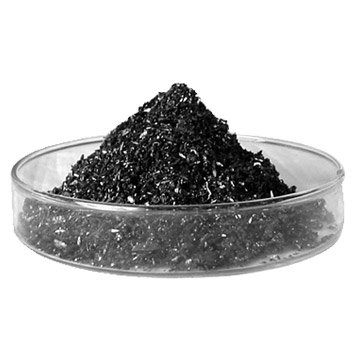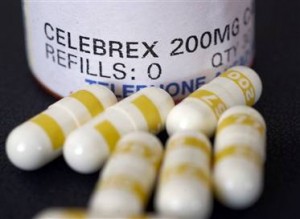By: Jennifer Lawson-Zepeda
Since I’ve come home from El Salvador, I’ve had a problem with weight. I’ve put on more weight than I seem to be able to remove. Clearly, I exercise like mad with my bike riding. I have also cut caloric intake and upped my water intake (in spite of the fact I hate peeing so much). Still, I can’t lose this weight. So I wondered what was going on.
 First, let me say that I have reached the conclusion that all of the blood tests in the world aren’t telling the complete story about my symptoms for a very good reason.
First, let me say that I have reached the conclusion that all of the blood tests in the world aren’t telling the complete story about my symptoms for a very good reason.
The results of my thyroid condition were controlled when I lived outside of the U.S. Yet, when I came back to the U.S. and got on medication produced here; my thyroid symptoms returned (while I’m on medication).
And this is not the first time I’ve discovered this. The same thing happened when I lived in Mexico and was treated by physicians down there. When I saw American doctors, the thyroid symptoms returned — again, even on medication.
What did this tell me? Either that the doctors in America are giving me too low of a dose of Levothyroxine or Synthroid; or the medication here is different.
So I started researching my condition. And this is what I found:
If adjusting your diet and exercising more hasn’t helped you reach a healthy body weight, you may have hypothyroidism, or an underactive thyroid gland. In addition to weight gain, other symptoms of hypothyroidism include a bad complexion, fatigue, forgetfulness, loss of sex drive, impotence, irritability and unhealthy hair, nails and teeth. Fortunately, you can help normalize an underactive thyroid gland by increasing your intake of the mineral iodine.
Iodine makes up less than a hundred thousandth of a percent of your body weight, but your thyroid cannot function without this trace mineral. If you have too little iodine in your diet, hypothyroidism and weight gain will occur. “I believe that an insufficient intake of organiciodine in today’s modern diet has led to a serious and chronic form of low-grade hypothyroidism,” writes Donald R. Yance, Jr. in Herbal Medicine, Healing and Cancer. Increasing your iodine level will allow your thyroid function and metabolic rate to return to normal. (Source: How iodine accelerates weight loss by supporting the thyroid gland)
 Consequently, I began to wonder if maybe my iodine intake was down. After all, I am not much of a fish eater, I have cut salt from my diet, and I don’t eat that many fast foods. So all of the sources of iodine that we customarily believe replenish our iodine aren’t really effective for me.
Consequently, I began to wonder if maybe my iodine intake was down. After all, I am not much of a fish eater, I have cut salt from my diet, and I don’t eat that many fast foods. So all of the sources of iodine that we customarily believe replenish our iodine aren’t really effective for me.
I decided to read the risks of replenishing iodine. For me, the ill effects could have been just as bad; so I settled on taking a multi-vitamin supplement that also provides minerals. I found the perfect supplement at Rite-Aid. It’s called Central-Vite and it has a few minerals which I was seeking:
Iodine
Zinc
Selesium
I was a little concerned that it didn’t have copper as I’ve read that this helps process the zinc; but I know that these three are important in helping our bodies use iodine.
Doctoring in the U.S.
What concerns me more than the iodine deficiency of America is the fact that doctors are now testing our medicines globally on some people who may not be the optimum examples of health. I was reading about American medicines and ran across this article:
Prescription drugs kill some 200,000 Americans every year. Will that number go up, now that most clinical trials are conducted overseas—on sick Russians, homeless Poles, and slum-dwelling Chinese—in places where regulation is virtually nonexistent, the F.D.A. doesn’t reach, and “mistakes” can end up in pauper’s graves? The authors investigate the globalization of the pharmaceutical industry, and the U.S. Government’s failure to rein in a lethal profit machine.
These places are not on anyone’s Top 10 list of travel destinations. But the advance scouts of the pharmaceutical industry have visited all of them, and scores of similar cities and towns, large and small, in far-flung corners of the planet. They have gone there to find people willing to undergo clinical trials for new drugs, and thereby help persuade the U.S. Food and Drug Administration to declare the drugs safe and effective for Americans. It’s the next big step in globalization, and there’s good reason to wish that it weren’t. (Source: Deadly Medicine)
I was horrified over this for two reasons. One includes a moral question of why our nation’s pharmaceutical companies felt they had to go outside of the U.S. to test our drugs. The other involves exploiting helpless people.
As recently as 1990, according to the inspector general of the Department of Health and Human Services, a mere 271 trials were being conducted in foreign countries of drugs intended for American use. By 2008, the number had risen to 6,485—an increase of more than 2,000 percent. A database being compiled by the National Institutes of Health has identified 58,788 such trials in 173 countries outside the United States since 2000. In 2008 alone, according to the inspector general’s report, 80 percent of the applications submitted to the F.D.A. for new drugs contained data from foreign clinical trials. Increasingly, companies are doing 100 percent of their testing offshore. The inspector general found that the 20 largest U.S.-based pharmaceutical companies now conducted “one-third of their clinical trials exclusively at foreign sites.” All of this is taking place when more drugs than ever—some 2,900 different drugs for some 4,600 different conditions—are undergoing clinical testing and vying to come to market. (Source: Deadly Medicine)
I began to think I was right. American pharmacology wasn’t the same practice as countries where I had been treated more effectively.
I recalled having treatment for my thyroid condition years ago. I never had these problems with American prescriptions until around the year 1999. It seemed to me that about then, my meds stopped being as effective. Yet the same dose of these drugs outside of the U.S. seemed highly effective. Why was that?
Some medical researchers question whether the results of clinical trials conducted in certain other countries are relevant to Americans in the first place. They point out that people in impoverished parts of the world, for a variety of reasons, may metabolize drugs differently from the way Americans do. They note that the prevailing diseases in other countries, such as malaria and tuberculosis, can skew the outcome of clinical trials. But from the point of view of the drug companies, it’s easy to see why moving clinical trials overseas is so appealing. For one thing, it’s cheaper to run trials in places where the local population survives on only a few dollars a day. It’s also easier to recruit patients, who often believe they are being treated for a disease rather than, as may be the case, just getting a placebo as part of an experiment. And it’s easier to find what the industry calls “drug-naïve” patients: people who are not being treated for any disease and are not currently taking any drugs, and indeed may never have taken any—the sort of people who will almost certainly yield better test results. (For some subjects overseas, participation in a clinical trial may be their first significant exposure to a doctor.) Regulations in many foreign countries are also less stringent, if there are any regulations at all. The risk of litigation is negligible, in some places nonexistent. Ethical concerns are a figure of speech. Finally—a significant plus for the drug companies—the F.D.A. does so little monitoring that the companies can pretty much do and say what they want. (Source: Deadly Medicine)
 If the Celebrex story in this article doesn’t scare you, nothing will. Celebrex was one of those drugs tested outside of the country. The end result when administered in the U.S. were a number of people suffered heart attacks and strokes that took this medicine. Pfizer had allegedly suppressed a study calling attention to these very problems.
If the Celebrex story in this article doesn’t scare you, nothing will. Celebrex was one of those drugs tested outside of the country. The end result when administered in the U.S. were a number of people suffered heart attacks and strokes that took this medicine. Pfizer had allegedly suppressed a study calling attention to these very problems.
So were my questions valid? I wanted to learn more. I wanted to know what had happened to my thyroid medicine that I had been taking effectively since the age of 13. I wanted to know why it no longer seemed to work.
I went through a series of tests in the U.S. I had everything studied; because I wanted to be sure my thyroid gland was not cancerous or something major, like that.
Then, I looked to see if I could figure out if American medicines WERE different from other medications prescribed outside of our borders. Why were we always warned about buying our medication outside of the country if they were tested there? Why DID the FDA always warn us about “foreign pharmaceuticals?”
I had a sneaking suspicion that it might have something to do with exactly what I had found. Those drugs outside of the U.S. were more effective. I thought this was amusing after reading about drug testing:
(NAPS)—When it comes to buying medicines, the U.S. Food and Drug Administration (FDA) believes that nothing is more important than safety.
With this in mind, FDA is warning consumers not to purchase medications from foreign countries, including Canadian Internet pharmacies. Non-FDA approved products sold from these outlets can be risky and dangerous. The FDA’s warning follows a recent announcement by the government of Canada that it cannot assure the safety or effectiveness of medicines being purchased by U.S. consumers from Canada.
In the U.S., FDA sets high standards to ensure that medicines are high quality, safe, and effective products. Around the world, FDA is considered the world’s gold standard. Because of FDA’s efforts and science-based decisions, millions of Americans can get the medicines they need and be assured of their safety and effectiveness when they buy from pharmacies and pharmacists licensed and located in the United States. (Source: Looks Can Be Deceiving: The Risks of Buying Medicines from Across the Border or Around the World)
There is a whole underside to America’s drug industry and the FDA.
In a future blog, I will explore the difference in how medicines are created in more depth. For more visit me @ http://lawsonzepeda.blogspot.com/


I have had the same problem with my thyroid and I believe it is the drugs marketed here which are all synthetic. One has to find an apocarthy that is willing to make non-synthetic thyroid medicines to get around this.
Also, American doctors routinely check only the TSH when running a thyroid check. There are many other variables to thyroid that affect its functioning that aren’t checked unless you ask, for me it was another marker which was off the charts. Also I believe what is “normal” for one person is going to be not normal for another but American doctors go by charts. This is mostly due to insurance agencies, it all gets very complicated.
Looks like I have one more reason to off myself when I hit 65 – my family already has a history of various health problems that pop up around that time (leading to a downward spiral that ends with dying in a hospital bed about a decade later…) and I don’t need presciption drugs that are faulty to compound this problem!
No – the only “medication” I will take when this time comes is a 180 gr. lead projectile straight into my head…
Iodine; which i used to carry at all times as a few drops in water is a highly effective way of purifying it and i’m a chronic traveler, has become increasingly more difficult to find. I find this peculiar as iodine is also very effective for fighting bacteria in cuts, and there is a form of iodine (i’d have to look it up because i’ve forgotten which one now) that battles radiation.
Apart from that, i lost my faith in American medicines shortly after returning from Mexico because of two very simple drugs; penicillin an ventolin. I took ventolin for asthma, and while in Mexico, i rarely had to use it. It was highly effective. Yet on my return to the US, i had to take it in increasingly larger doses. I finally tossed it aside and decided to use natural remedies.
I took penicillin once while i was in Mexico for an impacted tooth. Within an hour, the swelling had started going down and even the accumulated congestion in my chest had cleared. It took over a week of high dosage penicillin to clear up a kidney infection i developed a few years after returning to the US. I thought that was rather strange because i have a good immune system and rarely need antibiotics. I decided the “high dosage” was really low dosage compared to Mexican medication. Now i just give myself a purge each spring with devil’s club root and labrador tea and call it good. American medicines be hanged.
I’m sorry I haven’t responded to any of you for some time. I’ve had an abscessed tooth, which will be pulled today. However, I think each of you have made some great points about American medicine. I notice they are always downplaying obtaining prescriptions outside of the U.S. pharmacies. Now, I know why. As for the penicillin, I’ve been on it to remove the infection in my wisdom tooth. The abscess drained on it’s own on Saturday, removing the pain. The day I began the penicillin therapy, my neck glands swelled up, I developed a head cold which led to laryngitis, and I began a fever that left me drenched in sweat. Before taking the penicillin, I was confined to excruciating tooth pain. And WITH the penicillin, it still didn’t remove the tooth pain. It took tramasol and naproxen, along with a lidocaine mouth swishing agent to minimize it. Until it drained, the pain NEVER was gone, even with ALL of those medicines. It was simply less. F American pharmaceuticals!